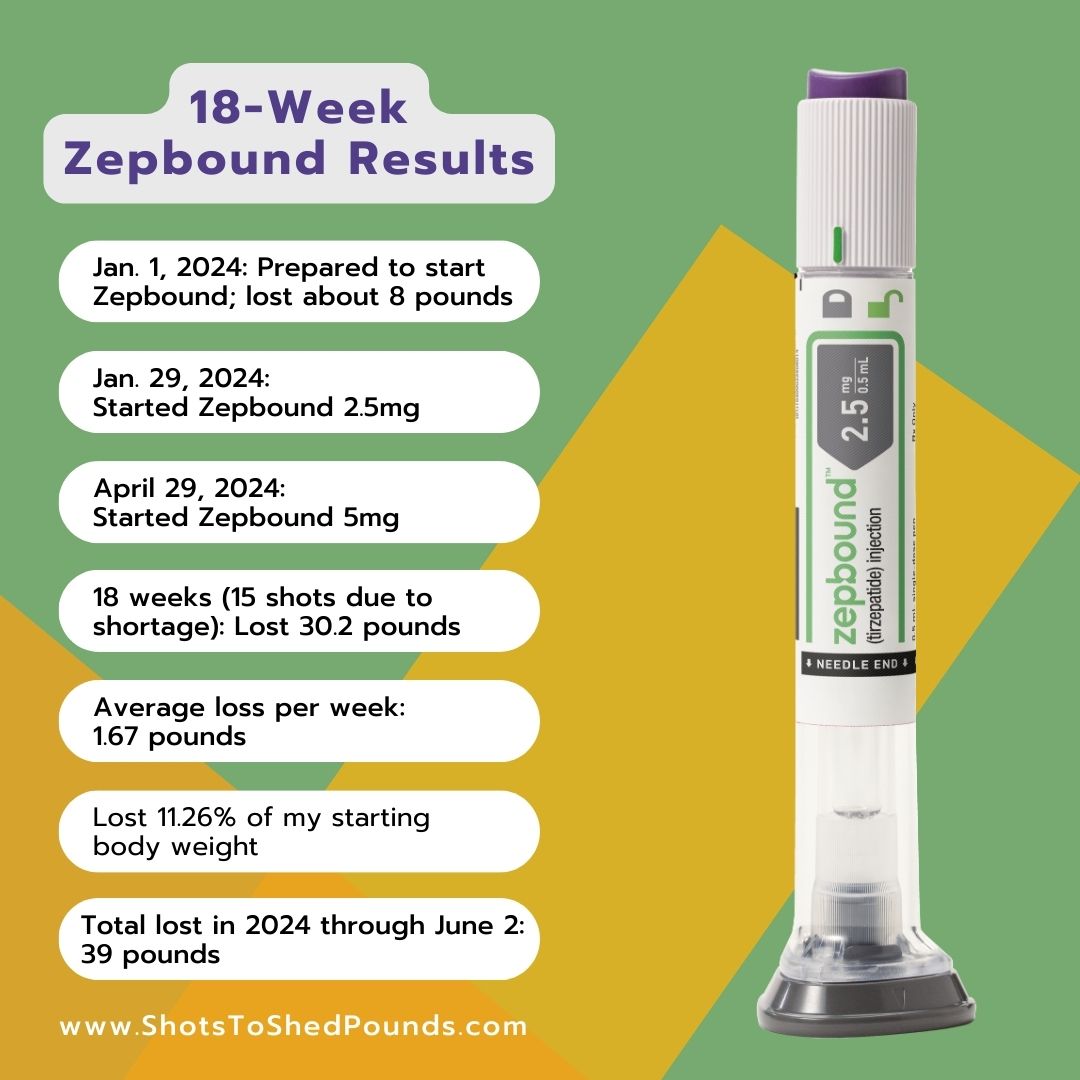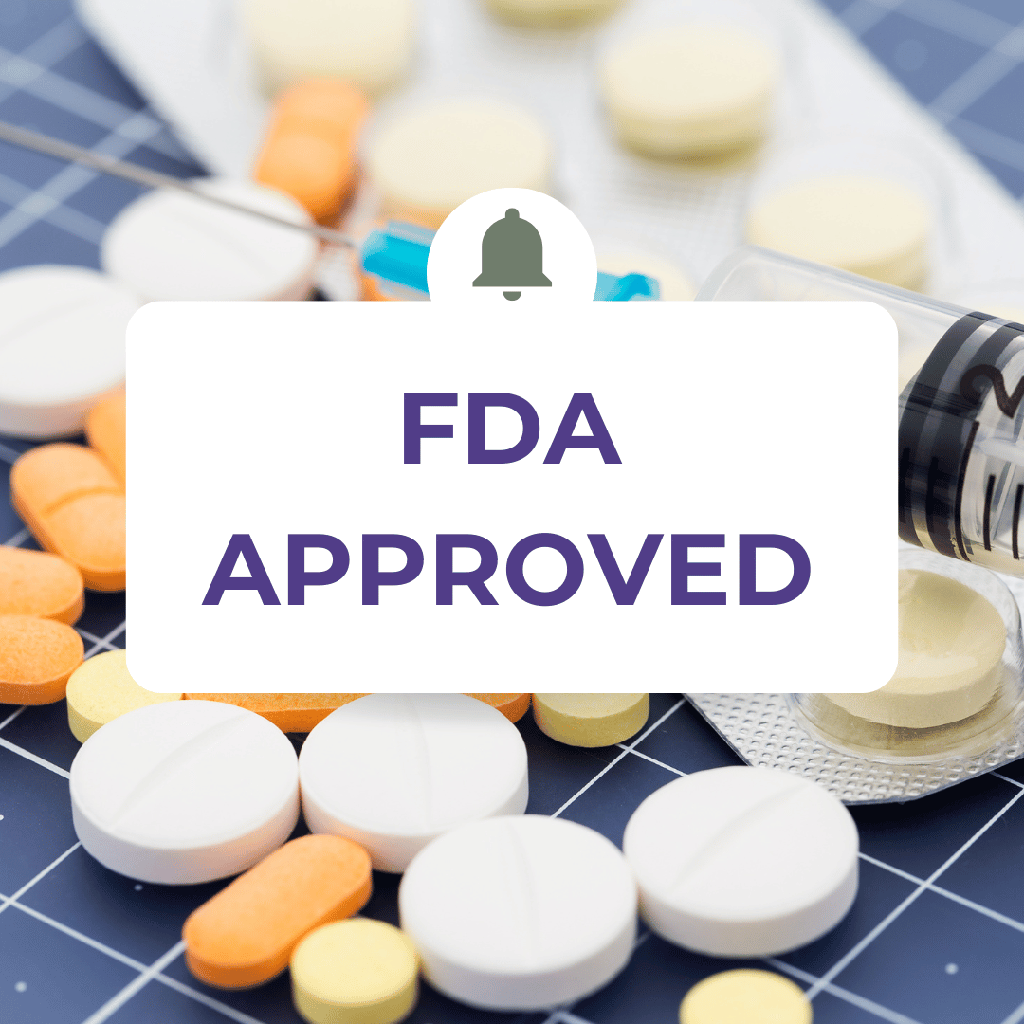10 questions to ask before taking a GLP-1 drug
GLP-1 incretin drugs are still relatively new for the treatment of obesity. The FDA only approved Zepbound (tirzepatide) in late 2023. These drugs are still fairly novel to some doctors and healthcare professionals. That’s perhaps why there are so many questions about Zepbound, Wegovy, Saxenda, and other GLP-1 medications. Let’s answer some of the most common questions to ask before taking a GLP-1 drug.
Do I need a backup birth control method when taking Zepbound, Wegovy, or another GLP-1 drug?
For women, yes, arranging backup birth control would be wise. This is the warning in Eli Lilly’s Zepbound (tirzepatide) medication guide (link to PDF):
“Birth control pills by mouth may not work as well while using Zepbound. If you take birth control pills by mouth, your healthcare provider may recommend another type of birth control for four weeks after you start Zepbound and for four weeks after each increase in your dose of Zepbound. Talk to your healthcare provider about birth control methods that may be right for you while using Zepbound.” (Note that this is the same guidance for Mounjaro since Zepbound and MJ are the same drug: tirzepatide.)
GLP-1 drugs have been known to correct some longstanding issues women have with their periods. Women who didn’t have regular menstrual cycles before taking a GLP-1 drug report that they now do. Many women also report changes in their cycle’s duration and frequency. For those reasons, doctors recommend a secondary method of birth control when you begin GLP-1 treatment. Talk with your doctor about this important topic before you take your first shot.
Does everyone who takes a GLP-1 drug deal with uncomfortable side effects?
No. Many people take GLP-1 drugs for years and never have one side effect. You won’t know if you’ll have side effects until you start taking the medication. Some people experience one side effect, while others may deal with several of them. A portion of the population only have side effects on a certain dosage, while others deal with side effects no matter the dose. Side effects are unique to each person. Don’t be afraid to try the medication because you may never deal with a single side side effect.
Full disclosure and TMI: Occasional constipation (easily managed with magnesium citrate, Metamucil, and Miralax) and trouble sleeping on the day of my shot are the only side effects I’ve encountered so far on 2.5mg and 5mg of Zepbound.
Related article: How to treat Zepbound side effects
Do I need to injection the medication at exactly the same time I did last week?
No. While you should take your shot on the same day of the week, the time of day doesn’t matter. You can take it in the morning, afternoon, or before bed. The key is to choose a time that works for you.
You can change the time of your shot whenever you wish. Just because you took Zepbound at 10 a.m. last week doesn’t mean you have to this week. If you’ve got a crazy day and can’t take it until after dinner, that is OK. Don’t worry about taking your dose at exactly the same time each week.
Can I change my shot day?
Yes. While it’s best to take the shots seven days apart, you can take the shot earlier or later if need be. Here’s what Zepbound manufacturer Lilly says about changing your shot day:
“You may change the day of the week you use Zepbound as long as the time between the two doses is at least three days (72 hours). If you miss a dose of Zepbound, take the missed dose as soon as possible within four days (96 hours) after the missed dose. If more than four days have passed, skip the missed dose and take your next dose on the regularly
scheduled day. Do not take two doses of Zepbound within three days (72 hours) of each other.” (Link to PDF)
If you take a different GLP-1 drug, check that brand’s medication guide for advice on changing up your shot day.
Do I need to change my diet when taking Zepbound or Wegovy?
That depends. What’s your meal plan like right now? Do you prioritize protein, get at least four servings of fruits and vegetables daily, and avoid simple carbohydrates in favor of complex ones?
If that sounds familiar, you probably don’t have to make many changes. If that doesn’t sound like you right now, it’s time to talk with your doctor or a dietician or nutritionist who can best explain what you need to do to fuel your body in the healthiest way.
GLP-1 medications reduce your appetite, so start every meal or snack prioritizing protein. Then eat your veggies, fruit, and healthy complex carbs.
When serving your meal, lean protein should fill half the plate. Then, serve yourself a quarter-plate of vegetables and/or fruit and a quarter-plate of carbs. Find out how many calories you need per day to lose weight.
Related article: How much protein should I eat on Zepbound, Mounjaro, or Wegovy?
Is it true that I’ll never be hungry again once I’m on a GLP-1?
Well, if it sounds too good to be true, it probably is. I’m sorry to say that while GLP-1 drugs do work to suppress your appetite, they don’t eliminate it. Sometimes, you won’t feel particularly hungry, but you will at other times. Having an appetite is healthy. Don’t work to eliminate that completely. Just have the right foods available to make the best choices when hunger does strike.
Does this mean I can never eat fried food, ice cream, or pizza again?
No! You can eat any food in moderation. Foods aren’t inherently “bad,” and you shouldn’t eliminate foods you love from your meal plan. However, certain foods may trigger some side effects of which you should be aware.
Greasy fried foods (fried chicken or shrimp, for example), cream and butter sauces, lots of cheese (pizza, lasagna), carbonated beverages, and alcohol can cause some people to feel nauseous after consuming them.
If you take any GLP-1 drug, tread carefully the first time you eat any food that could trigger a negative gastric reaction. Try eating a smaller portion and see how you feel. It’s a lot of experimentation at the beginning of your GLP-1 journey.
If you find that traditional recipes for these foods don’t agree with you anymore, cook a lighter version. For example, instead of frying chicken in oil on the stovetop, can you cook a breaded chicken cutlet in the air fryer? Instead of cheese lasagna, can you make one that omits the ricotta and replaces it with pureed vegetables topped with a smaller amount of reduced-fat mozzarella? Small tweaks may make it possible to keep your favorite meals in your repertoire.
Will I lose my hair while taking Zepbound or Wegovy?
GLP-1 drugs do not cause your hair to fall out. However, anytime someone loses weight quickly or loses a lot of weight over time, the body does react and hair loss is common. You can partially combat this by focusing on protein intake and taking a good collagen peptide supplement daily. (My collagen peptide of choice is Vital Proteins unflavored powder, but there are lots of options.)
Will I need to take this drug for the rest of my life?
Maybe. These drugs haven’t been around long enough to know the definitive answer. For people like me who have struggled with their weight for years and have lost and gained and lost and gained the weight over and over again, doctors do think we will need GLP-1 treatment for the long haul.
However, many people maintain their goal weight by taking a shot once every two, three, or four weeks. I’ve even talked with someone who takes one shot every seven weeks and has maintained her weight for more than a year.
Most titrate their dose downward when they’ve reached their goal in order to take the lowest possible dose that helps them maintain their weight. Some people go back to 2.5mg, while others may find 5mg or 7.5mg to be the sweet spot. But, again, this is truly dependent on the person, and you’ll need to experiment to figure out what works best for you.
If you decide to stop your GLP-1 once you hit your goal weight, carefully monitor your caloric intake for maintenance and exercise regularly. If you start to see the scale creep up — even when you’re doing everything right — that may be a signal that you need to keep taking the drug throughout maintenance.
Can I keep taking my GLP-1 if I need to have surgery, a colonoscopy, or another procedure that requires anesthesia?
No. If you require anesthesia for any scheduled procedure or treatment, your doctor will ask you to temporarily stop taking your GLP-1. When you stop taking the medication depends on the procedure and your doctor. You may need to hold GLP-1 drugs for two weeks or more before a colonoscopy, for example. The anesthesiologist will provide the necessary guidance.
These drugs slow gastric emptying and your stomach should be empty upon being anesthetized. Not doing so can cause aspiration, which, at best, can trigger pneumonia and, at worst, can lead to sudden death by suffocation.
Of course, sometimes emergencies occur, and you may need to be anesthetized even if you recently had a GLP-1 injection. Your doctors will make the decision based on the risks versus rewards.
To be safe, add all your medications to your Health app on your iPhone (which emergency workers can access) or wear a medical alert bracelet or pendant with that information.
The wrap-up
These are just a few of the questions to ask before taking a GLP-1 drug. What additional questions do you have about taking Zepbound, Mounjaro, Wegovy, Saxenda, or other GLP-1 medication? Email me or post your questions to the Shots to Shed Pounds Facebook page. I may add the question and answer to this article. Thanks!






